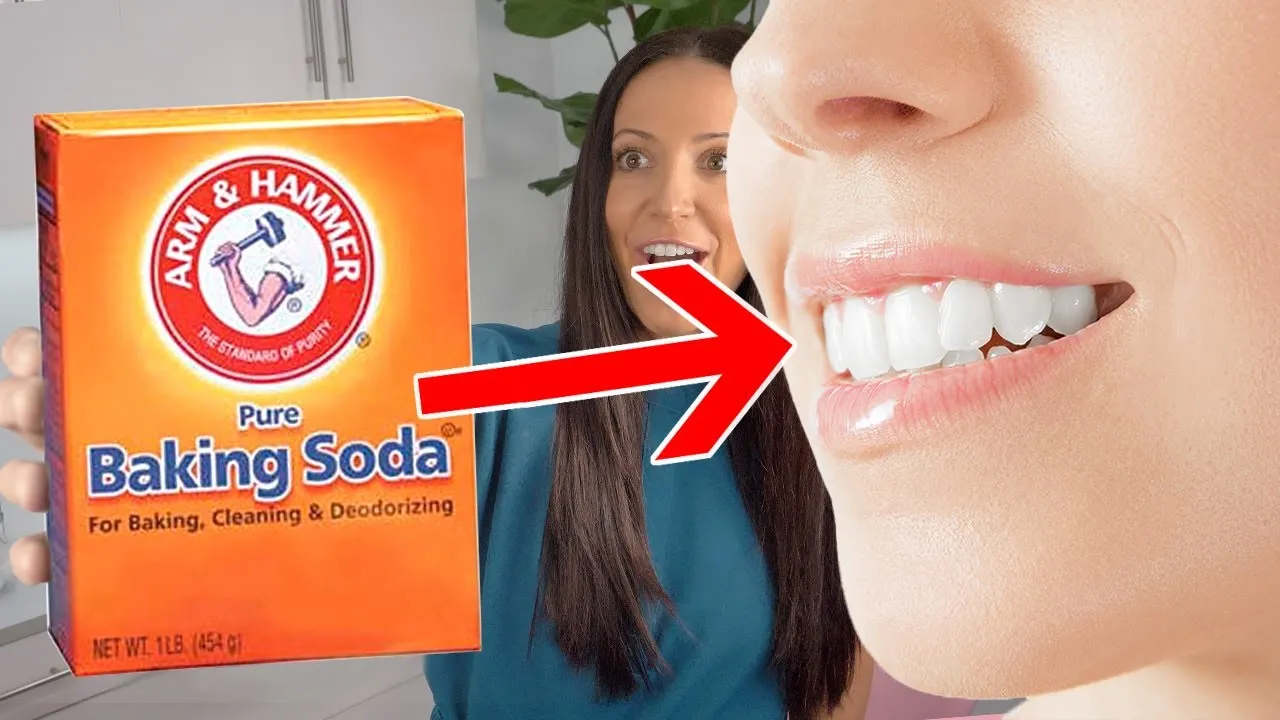What is Baking Soda and Why Use it for Teeth Whitening
Baking soda, also known as sodium bicarbonate, is a common household ingredient with a wide range of uses, from cooking to cleaning. Its mild abrasive properties make it a popular choice for teeth whitening. Many people turn to baking soda as a natural and affordable alternative to commercial teeth whitening products. Unlike expensive treatments, baking soda is readily available and can be easily incorporated into your oral hygiene routine. This guide explores the benefits, methods, and precautions associated with using baking soda to achieve a brighter, healthier smile, covering everything from how it works to what results you can expect.
The Science Behind Baking Soda’s Whitening Power
Baking soda’s effectiveness in teeth whitening stems from its chemical properties and mild abrasive nature. It acts as a gentle scrubber, helping to remove surface stains caused by coffee, tea, tobacco, and certain foods. Sodium bicarbonate is a mild alkaline, which helps neutralize acids in the mouth, promoting a healthier environment. This helps to prevent tooth decay. The abrasive particles of baking soda help to break down the molecules that cause staining, leading to a brighter appearance of the teeth. However, it is important to note that baking soda only works on surface stains and does not change the intrinsic color of the teeth.
How Baking Soda Works on Teeth
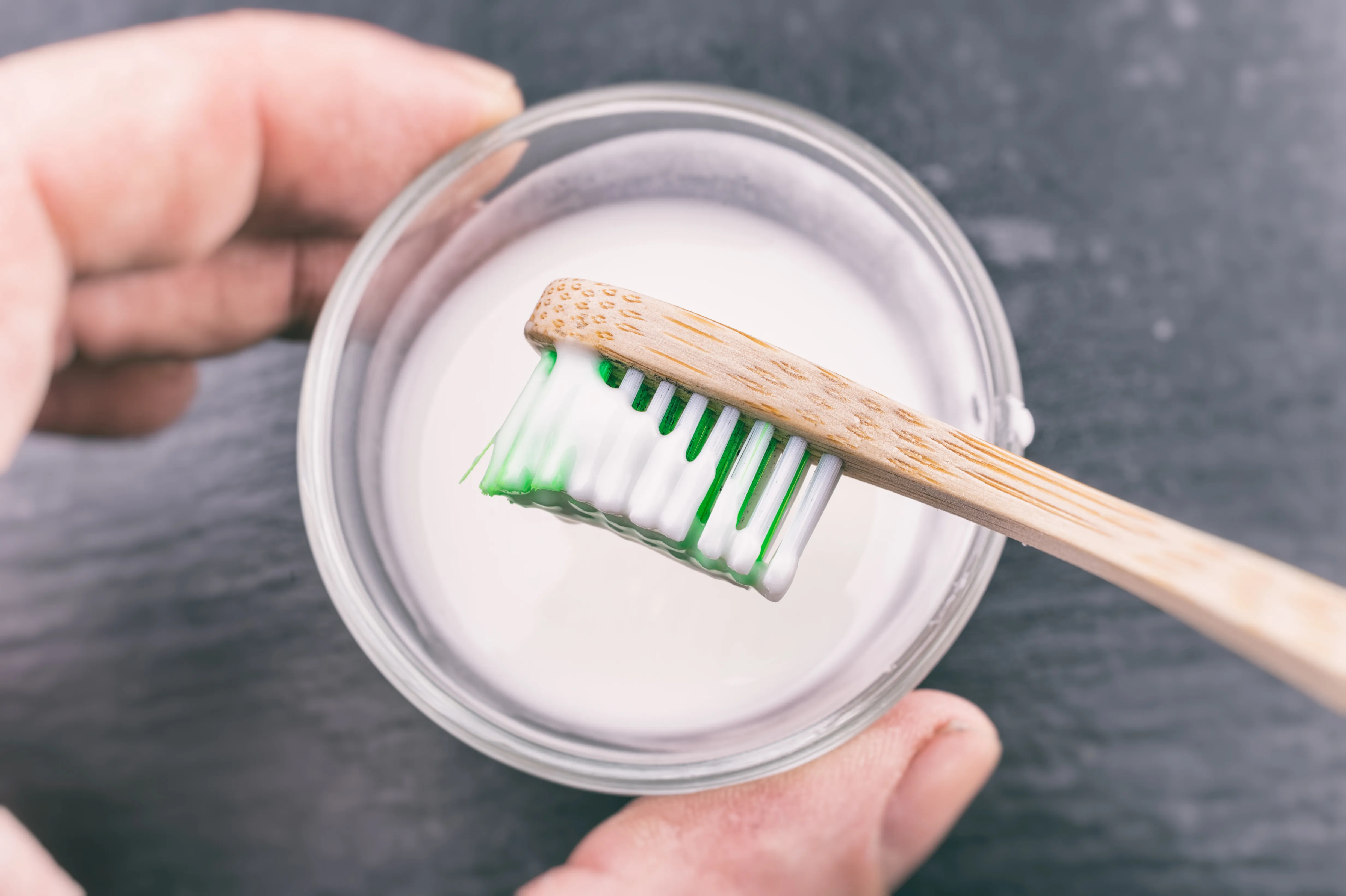
When used on teeth, baking soda works through a combination of physical and chemical actions. Physically, the fine granules gently scrub the tooth surface, dislodging stain particles and plaque. Chemically, baking soda creates an environment that is less conducive to stain formation and bacterial growth. It also helps to balance the pH in the mouth, which can reduce acidity and the risk of tooth decay. The process is simple, the gentle scrubbing action of baking soda helps to polish the enamel, revealing a brighter smile. Consistent use, coupled with proper oral hygiene, can yield noticeable results over time.
Baking Soda Teeth Whitening [10] Amazing Results
Amazing Result 1 Noticeable Brightening
One of the most immediate and visible results of using baking soda for teeth whitening is a noticeable brightening of the teeth. Surface stains from various foods and drinks, such as coffee and red wine, can be effectively removed, revealing a naturally whiter smile. Regular use of baking soda helps to gradually lighten the shade of your teeth, giving them a more vibrant and healthy appearance. This process is a gentle one and usually takes a few weeks to see significant results, but the effect is a fresher and more appealing smile.
Amazing Result 2 Stain Removal

Baking soda’s abrasive properties are highly effective in removing stains from the surface of the teeth. Stains from everyday culprits like tea, coffee, and tobacco, are gradually removed through gentle scrubbing. The fine particles of baking soda help to break down and lift the stain particles. This action restores the natural color of the teeth. Over time, with consistent use, stains that have accumulated for years can be significantly reduced, resulting in a cleaner and brighter smile. The benefits include improved aesthetics and enhanced oral hygiene.
Amazing Result 3 Fresher Breath
Baking soda has natural deodorizing properties that can help combat bad breath. It neutralizes acids in the mouth, which are often a cause of unpleasant odors. By reducing the acidity and helping to maintain a balanced pH level, baking soda creates an environment that is less favorable for odor-causing bacteria. Regular use of baking soda can help to eliminate bad breath, leaving your mouth feeling fresher and cleaner. This can lead to increased confidence in social interactions and improved overall oral hygiene.
Amazing Result 4 Plaque Control
Baking soda’s mild abrasive action helps to remove plaque buildup on the teeth. Plaque is a sticky film of bacteria that forms on the teeth and is a major cause of dental problems, including cavities and gum disease. By gently scrubbing away plaque, baking soda helps to keep the teeth clean and reduces the risk of these issues. The regular removal of plaque with baking soda contributes to better overall oral health and a reduced need for professional dental cleanings. This proactive approach supports both a healthy mouth and a brighter smile.
Amazing Result 5 Gentle Abrasive Action
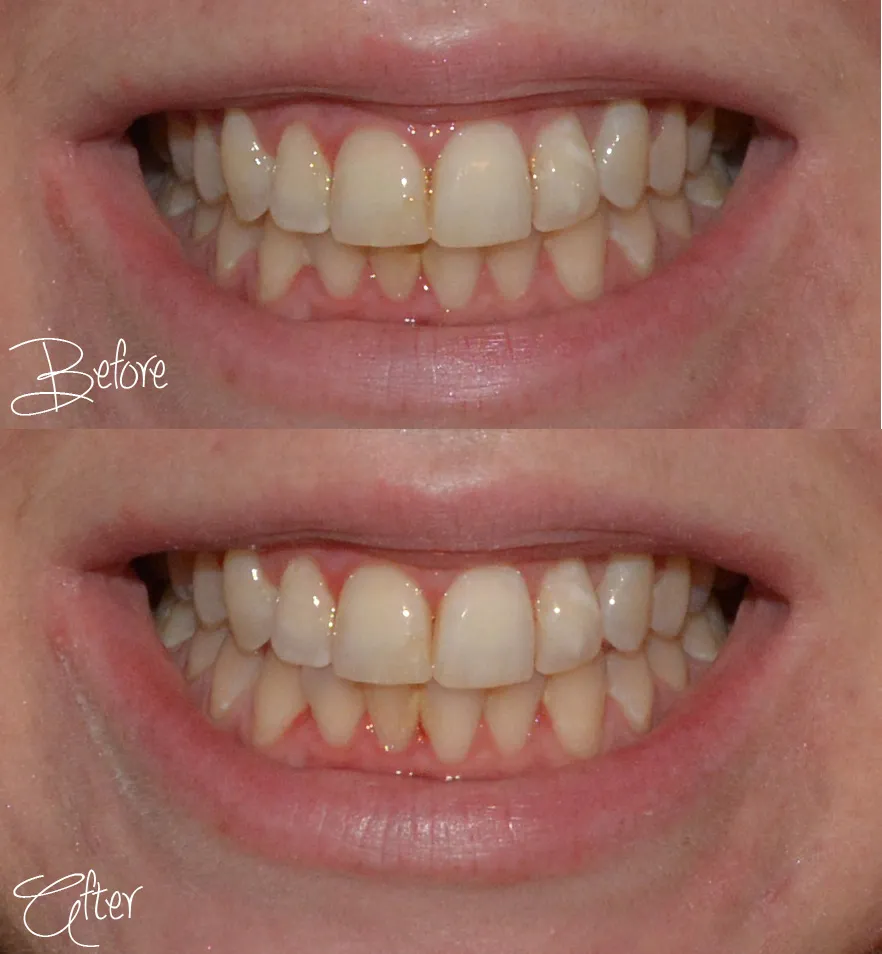
One of the key benefits of baking soda is its gentle abrasive action. The fine particles gently scrub the teeth without causing significant damage to the enamel. This means it effectively removes stains and plaque without the harshness of some commercial whitening products. Its mild abrasive properties make it suitable for daily use, unlike some stronger treatments that may be harmful if used too frequently. The gentle nature ensures the teeth are cleaned thoroughly while maintaining their integrity.
Amazing Result 6 Cost-Effective
Compared to many other teeth whitening treatments, baking soda is extremely cost-effective. A box of baking soda is relatively inexpensive and lasts for a long time, making it an economical choice for maintaining a brighter smile. Unlike expensive professional treatments or over-the-counter whitening kits, baking soda offers a budget-friendly way to achieve noticeable results. This makes it accessible to a wider range of people who want to improve their dental aesthetics without breaking the bank.
Amazing Result 7 Easy to Access
Baking soda is readily available in most grocery stores and pharmacies, making it incredibly easy to access. You do not need a prescription or a special appointment to obtain it. This accessibility is a significant advantage over other teeth whitening methods. It allows individuals to start using baking soda for teeth whitening immediately. Its widespread availability removes any barriers to entry. This makes it a convenient option for anyone looking to improve their smile.
Amazing Result 8 Natural Alternative

For those seeking a natural approach to teeth whitening, baking soda is an excellent choice. It is a simple, chemical-free option, unlike many commercial products that contain harsh chemicals and additives. This makes it a good choice for individuals who are concerned about using synthetic substances. Baking soda is a safe and gentle way to whiten teeth without the risks associated with stronger chemical treatments. The use of baking soda aligns with a preference for natural and holistic health practices.
Amazing Result 9 Improved Oral Health
Beyond whitening, baking soda contributes to overall oral health. It helps to neutralize acids, reducing the risk of tooth decay, and can also help combat bad breath. The removal of plaque through gentle abrasion aids in preventing gum disease and other oral health issues. The use of baking soda complements a regular oral hygiene routine. It strengthens the teeth and gums for a healthier mouth. This provides additional benefits beyond just a brighter smile.
Amazing Result 10 Enhanced Confidence
One of the most significant outcomes of using baking soda for teeth whitening is an improvement in self-confidence. A brighter, healthier smile often leads to a greater sense of self-esteem. When you are happy with the appearance of your teeth, you are more likely to smile more often and feel more comfortable in social situations. The subtle but noticeable improvements from baking soda can make a big difference in your self-perception and how you interact with others, leading to increased confidence.
How to Properly Use Baking Soda for Teeth Whitening
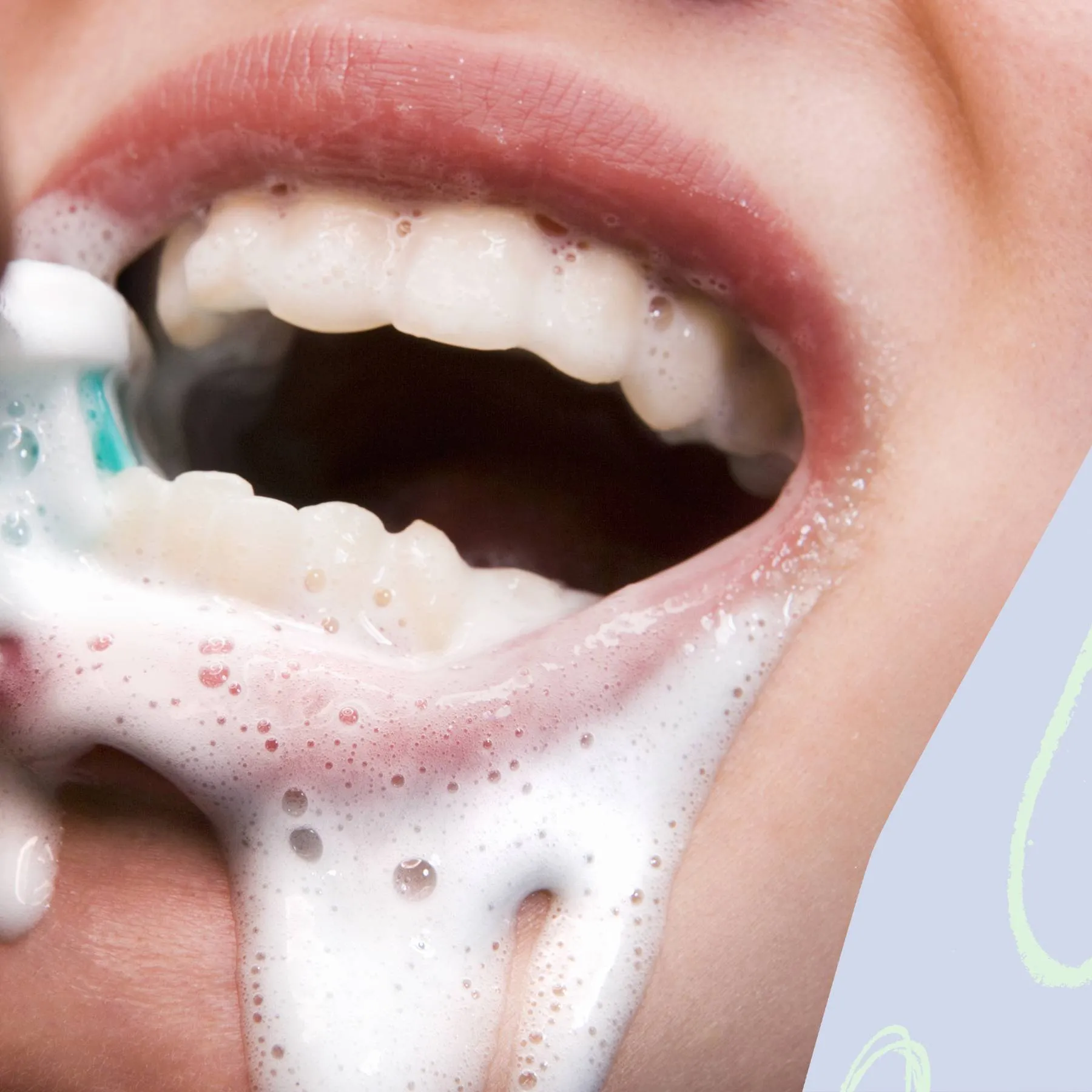
Preparation and Ingredients
The preparation for using baking soda involves a few simple steps and readily available ingredients. You will need baking soda, usually found in the baking aisle of your grocery store, and water. Mix one teaspoon of baking soda with enough water to form a paste. The consistency should be thick enough to stick to your toothbrush but not too runny. Some people also add a few drops of hydrogen peroxide for enhanced whitening effects, but this is optional. Make sure you have a soft-bristled toothbrush to avoid damaging your enamel during the gentle scrubbing process.
Step-by-Step Guide to Whitening
Begin by wetting your toothbrush. Then, apply the baking soda paste to the bristles. Gently brush your teeth using circular motions. Make sure to cover all surfaces of your teeth, including the front, back, and chewing surfaces. Brush for about two minutes. After brushing, rinse your mouth thoroughly with water to remove any remaining baking soda. Make sure to spit out any excess paste to avoid swallowing. After that you can brush your teeth with your regular toothpaste to ensure thorough cleaning and to freshen breath.
Frequency and Duration
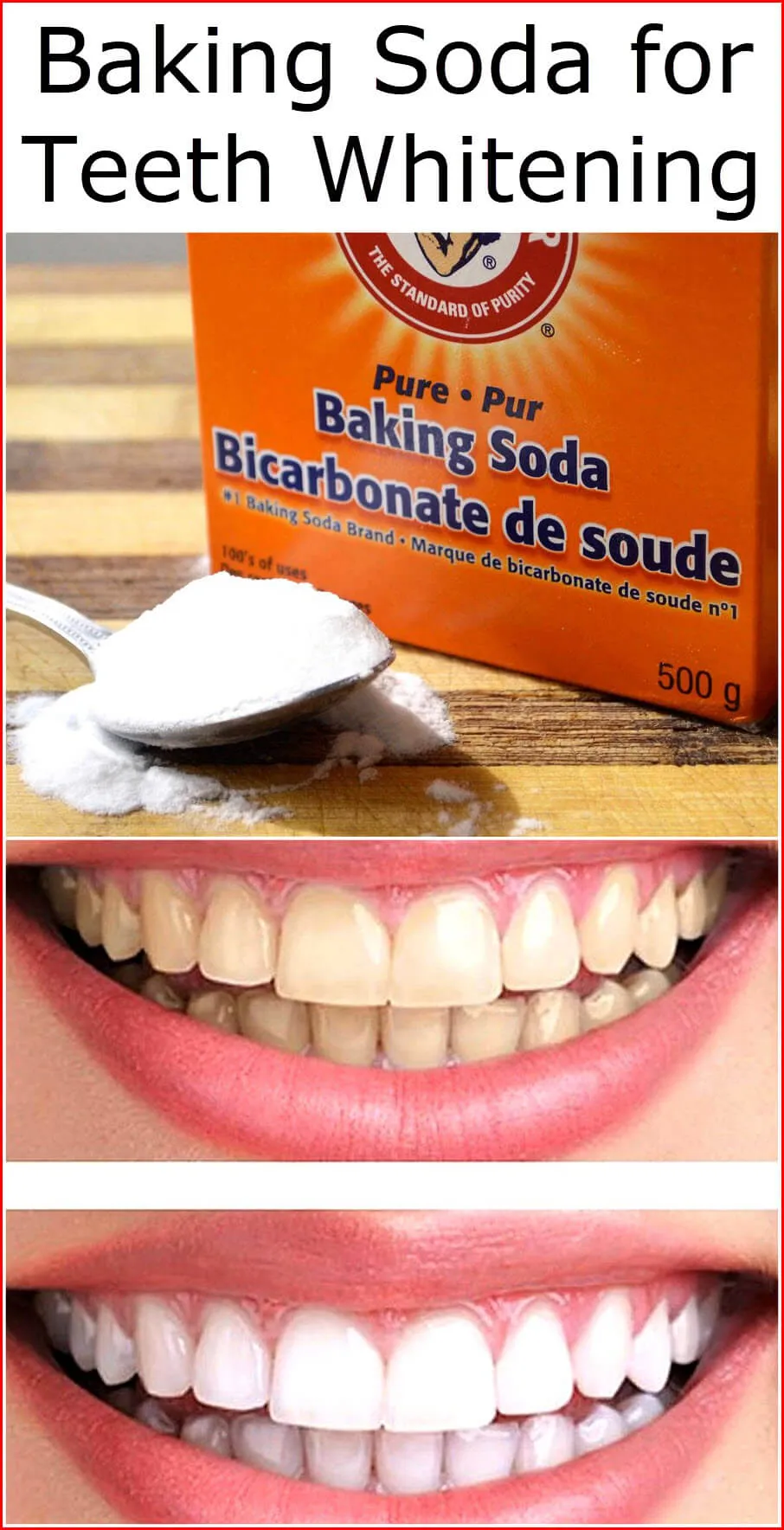
It is generally recommended to use baking soda for teeth whitening no more than two to three times a week. Overuse can lead to enamel erosion and increased sensitivity. Limit the brushing duration to two minutes per session to avoid excessive abrasion. Consistent use over several weeks can lead to noticeable results. For maintenance, use baking soda once or twice a week. Always alternate with your regular toothpaste to maintain overall oral health. Regularly monitor the condition of your teeth and gums, and consult with a dentist if you notice any adverse effects.
Baking Soda Teeth Whitening Before and After Care
Expected Outcomes
With consistent use, you can expect to see gradual improvements in the brightness of your teeth. Surface stains from coffee, tea, and other foods will diminish, resulting in a cleaner and more radiant smile. The effects are generally subtle. They usually become noticeable within a few weeks of regular use. The degree of whitening will vary depending on the individual’s starting tooth shade and the severity of the stains. It is important to have realistic expectations, as baking soda may not achieve the same dramatic results as professional treatments. You can see before and after pictures to see the results.
Potential Side Effects and Precautions
While baking soda is generally safe, there are potential side effects to be aware of. Some individuals may experience increased tooth sensitivity, particularly if they have existing enamel erosion or sensitive teeth. Prolonged use can also lead to enamel erosion, increasing the risk of cavities and other dental problems. Always rinse your mouth thoroughly after brushing to remove all baking soda residue. If you experience any discomfort or significant changes in sensitivity, discontinue use and consult your dentist. It is always best to proceed with caution and be mindful of your oral health.
Risks of Overuse
Overuse of baking soda can pose several risks to your oral health. Because of its abrasive nature, excessive brushing can erode the enamel over time. This increases tooth sensitivity and makes teeth more susceptible to decay. Overusing baking soda can also irritate the gums, leading to inflammation and discomfort. To prevent these issues, it is important to stick to the recommended frequency of use. If you experience any signs of enamel erosion, such as increased sensitivity or a change in tooth appearance, stop using baking soda immediately and consult your dentist.
Important Safety Advice
Always consult with your dentist before starting any new teeth whitening regimen. If you have sensitive teeth, enamel erosion, or any other dental issues, baking soda may not be suitable for you. Follow the recommended frequency and duration guidelines to avoid overuse and potential side effects. If you experience any discomfort, sensitivity, or changes in your teeth or gums, discontinue use immediately and seek professional dental advice. Combining baking soda with other whitening treatments may increase the risk of adverse effects, so use caution. Maintaining good oral hygiene practices and regular dental check-ups are crucial for overall oral health.
Baking Soda Teeth Whitening Beyond Whitening
Additional Benefits for Oral Health
In addition to whitening, baking soda offers several other benefits for oral health. It has antibacterial properties that can help reduce the number of bacteria in the mouth. This reduces the risk of tooth decay and gum disease. Baking soda also helps to neutralize acids. This creates a healthier environment that supports the growth of beneficial bacteria and inhibits the growth of harmful ones. Using baking soda can also help improve the overall health of the gums. This results in less inflammation and a reduced risk of gingivitis.
Supporting Dental Hygiene
Using baking soda supports the overall practice of good dental hygiene. It enhances the effectiveness of brushing by removing plaque and surface stains more efficiently. Regularly cleaning your teeth is important for maintaining optimal oral health. Make sure to include brushing, flossing, and the use of mouthwash. Baking soda can be a valuable addition to your oral care routine. It offers a cost-effective and natural way to improve dental health and aesthetics. Combining baking soda with other good habits is a great way to keep your teeth healthy.
Alternatives to Baking Soda for Teeth Whitening
Other Natural Remedies
While baking soda is a popular choice, other natural remedies can help with teeth whitening. Activated charcoal is another mild abrasive that can help remove stains and brighten teeth. However, its effectiveness and safety are still debated. Coconut oil pulling involves swishing coconut oil in your mouth for about 15-20 minutes. It is believed to remove bacteria and improve oral health. Hydrogen peroxide is another natural whitening agent, but should be used cautiously to avoid irritation. It is always important to consult a dentist before trying any new teeth whitening methods. They can provide the best advice based on your individual needs.
Professional Teeth Whitening Options
If you are looking for more dramatic results, professional teeth whitening options are available. These include in-office whitening treatments performed by a dentist, which use stronger bleaching agents for faster and more effective results. Custom-fitted whitening trays can be provided for at-home use, allowing you to gradually whiten your teeth with professional-grade products. Professional whitening treatments offer more predictable and significant results compared to at-home methods, such as baking soda. They are also performed under the supervision of a dental professional. That ensures safety and minimizes the risk of potential side effects. The best option depends on individual needs and preferences.
Conclusion Baking Soda Teeth Whitening Results
Baking soda can be a valuable addition to your oral hygiene routine. It is a cost-effective and accessible option for teeth whitening. When used correctly, it offers noticeable results by removing surface stains and contributing to a brighter smile. While it is a safe and effective option for many, it is essential to use it in moderation. Always consult with your dentist before starting any new teeth whitening treatment. Regular use and good oral health practices can contribute to your smile.
